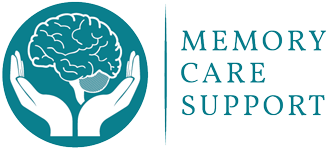by Sue Moroney, RN

We stand at the threshold of a new era in the treatment of Alzheimer’s disease! After years of challenges in finding effective medications to halt the progression of dementia, encouraging progress is now unfolding. From 2004 to 2017, no new medication approvals were made. Today, however, 127 drugs are actively undergoing clinical trials. Dr. Jeffrey Cummings aptly noted, “We have gone from symptomatic therapies to therapies that are actually changing the disease itself, and that is a new era.”
On December 10, 2024, Dr. Cummings presented an insightful webinar for Alzheimer’s Disease International, sharing valuable information about the current state of research. As a professor of neurology at the University of Nevada, Las Vegas, and a leading expert in Alzheimer’s research and clinical trials, Dr. Cummings has authored 40 books and over 900 articles on dementia, showcasing his deep commitment to this field.
Four key classifications of drugs are being explored in clinical trials:
- Disease-Modifying Biologics: These intravenous treatments aim to slow the progression of the disease.
- Disease-Modifying Small Molecules: These oral medications also seek to slow disease progression, offer greater ease of administration, and promote better patient compliance.
- Cognitive Enhancers: These drugs are designed to improve cognitive function and alleviate symptoms associated with dementia.
- Neuropsychiatric Symptom Treatments: These medications address specific symptoms of dementia, including depression, agitation, and psychosis.
The overarching goal is to progress from merely managing symptoms to developing effective treatments that can actually alter the course of Alzheimer’s disease. This shift is a monumental step forward in the quest for effective therapies.
Before any drug receives approval for use, it must successfully navigate three phases of testing:
- Phase 1: In this initial stage, the drug’s safety for human use is thoroughly assessed.
- Phase 2: Here, the focus shifts to evaluating the drug’s effectiveness in patients diagnosed with the disease.
- Phase 3: This advanced phase involves large-scale testing on diverse patient populations to confirm efficacy and safety.
Typically, the journey from Phase 1 to Phase 3 takes about 10 years. While this timeline can be lengthy, researchers are leveraging innovative biomarkers, including blood tests and brain scans, to expedite drug effectiveness evaluations beyond traditional memory testing methods.
If you are interested in learning more about these exciting developments and their implications, I encourage you to visit Alzheimer’s Disease International and explore the resource titled “Translating the Alzheimer’s Treatment Revolution into Real World Solutions.” Together, we can look forward to a future with enhanced treatment options for those affected by Alzheimer’s disease.

